Nude Foods: the intimate details of growing a sustainable business

Megan
9 Dec, 2021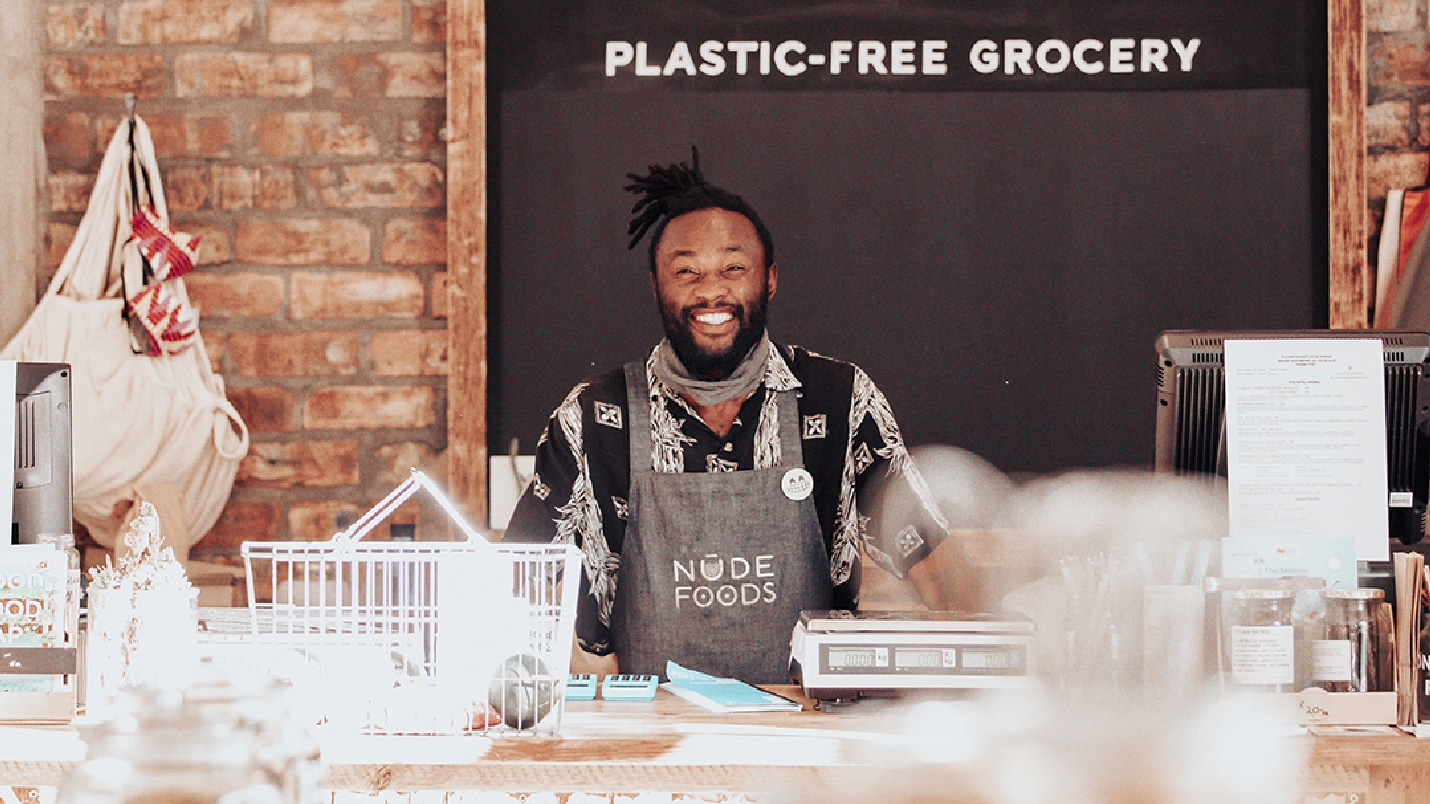
When you walk around Nude Foods, you’ll see rows of jars in various shapes and sizes. These jars are filled with high-quality, organic pantry staples. The one thing you won’t see? Plastic.
Launched in 2017, Nude Foods was Cape Town’s first plastic-free store. Founder, Paul Rubin, wanted to create a store that sold food that was not only good for you but also good for the environment. “I’d been living a vegan and plant-based life for a while,” he explains. “I found that all the places I could buy legumes and grains were, in my opinion, overly packaged in plastic. After a while, I realised I was putting a lot of time and energy into making sure that my body was clean and healthy, but I wasn’t doing the same for the environment because I was amassing a lot of plastic waste.”
Read more: The Wren Design: turning paper into something extraordinary
Dubbed an old-school grocery store with a modern twist, Nude Foods is on a mission to make plastic-free shopping easy and accessible to everyone.
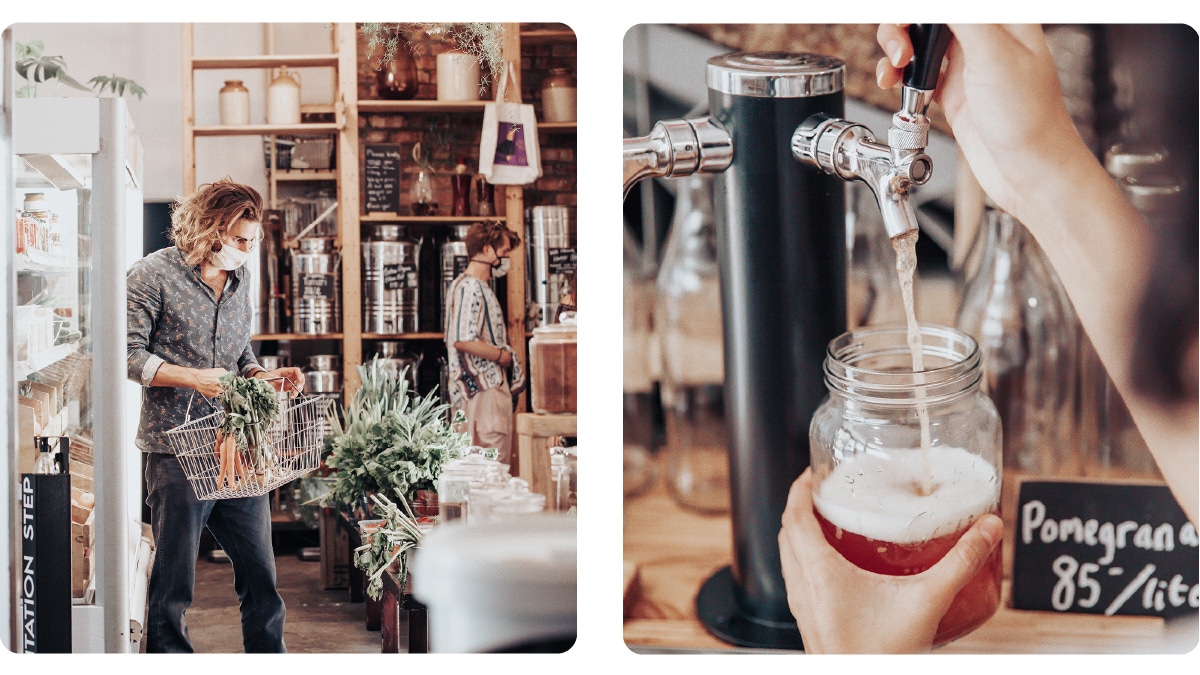
Although Nude Foods started as a passion project for Paul, it quickly became how he earned his living. We caught up with the entrepreneur to learn how he grew a sustainable business.
You had zero retail experience when you opened Nude Foods. What helped you learn the ropes?
I worked around the clock for a year. Retail is very unforgiving because you have fixed trading hours. The shop had to open at 9 am and close at 6 pm. In the beginning, it was just an assistant and me. So I was in the store six days a week, serving customers behind the checkout counter.
Because I was new to retail, it was almost like a crash course. It taught me how retail works, and helped me understand what my customers wanted so I could refine my offering accordingly. It was a very valuable experience to me because it helped me establish a lot of regular customers, and gain insight into what they wanted.
Read more: 8 communication tips for success in sales
What would you say were some of the biggest lessons you learned?
There weren’t any zero-waste stores in the country, so there wasn’t a store I could draw inspiration from. I looked at Pinterest and Instagram, and I found similar stores in Europe, Canada and New Zealand. I saw how they were setting up their fresh produce section, and drew inspiration from that.
There was a lot of trial and error in the beginning. When you’re selling food that’s perishable, it’s very easy to make mistakes, and those mistakes can be costly. I always compare it to selling clothes. You may not sell your clothing in time but it’s still sellable. You can mark it down or have a clearance sale. When it comes to perishable food, you have a short window to sell it. If it doesn’t sell, you have two options – donate it to a soup kitchen or compost it.
So I learnt a lot about working with food and food retail, as well as how to manage human beings. Human beings are wonderful but complex creatures, so there’s always dynamics at play. At the moment I’ve got 16 employees, and every day I’m learning how to be a better leader, and a better manager because I still make mistakes.
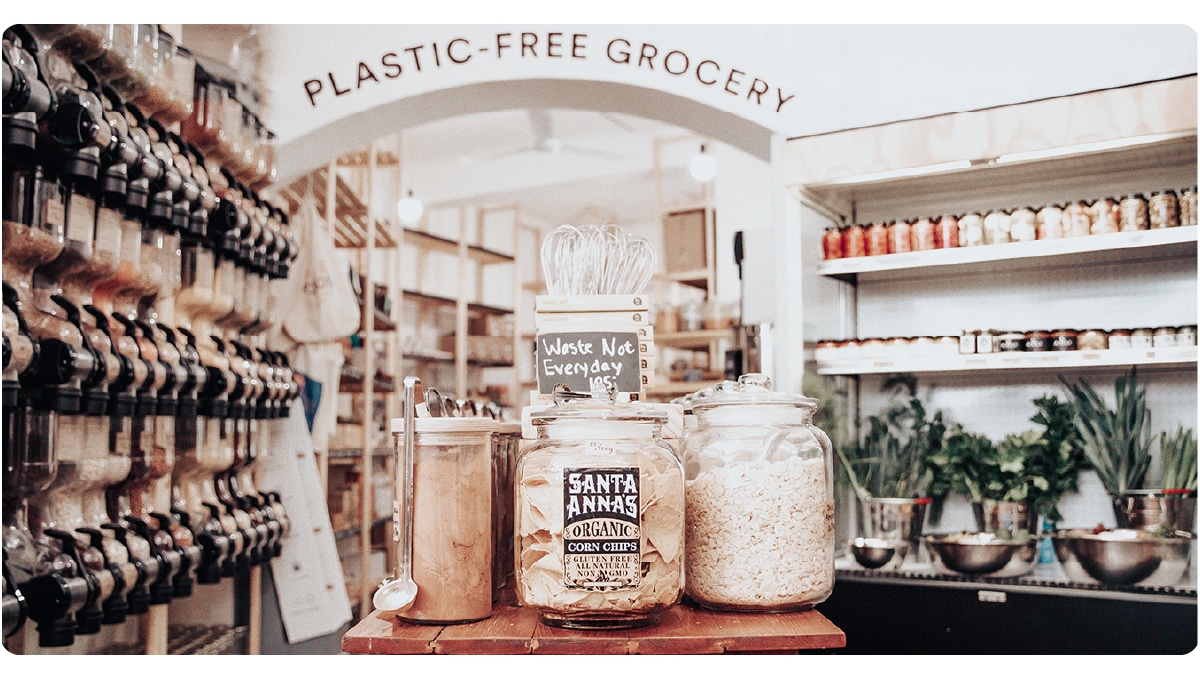
Your goal is to create a world that’s more sustainable. Aside from not using plastic, what other sustainable practices do you implement in the store?
We try to work with as many local producers as we can. All of our fresh produce is organic, and we only buy from growers within a ten-kilometre radius of Cape Town.
Of course, some products aren’t sold in South Africa. In the instances we’re forced to import, we’ll buy directly from a supplier. We try to eliminate waste along our supply chain, and try to buy in bulk as much as possible.
We also do quite a deep dive when we onboard new suppliers. We have quite an extensive questionnaire that we give them before we decide to sell their products. We try to ascertain where their products come from, and how it’s made.
We also support a lot of startups. A lot of these businesses are owned and run by one person. We’ve got a woman who works from home who makes amazing gluten-free, vegan shortbread biscuits. So we try to support people like that who are selling at markets or who maybe only have one or two retailers. We’ve often found people who make really good products and we’ve helped them get their product onto our shelves, and in that process, they’re able to get their products onto other people’s shelves. So we work quite closely with sustainable small-scale brands.
Read more: Sealand Gear: turning yacht sails into responsible sales
You’ve added a cafe to the store, opened another branch and also made it possible for customers to buy online. What helped you scale the business?
We didn’t have an online offering before Covid. Covid didn’t give us much of a choice. We had to put an online offering together. Covid is also the reason we opened the second store. Fewer people were shopping in town, so we decided to open a store in the suburbs.
A lot of our growth has been out of necessity, and having to pivot and change the business to survive. We have grown steadily since we launched four years ago. What’s helped is consistently offering good service to people. As your customer base grows, so does your business. This isn’t a get rich quick thing, it takes a lot of time and energy and commitment.
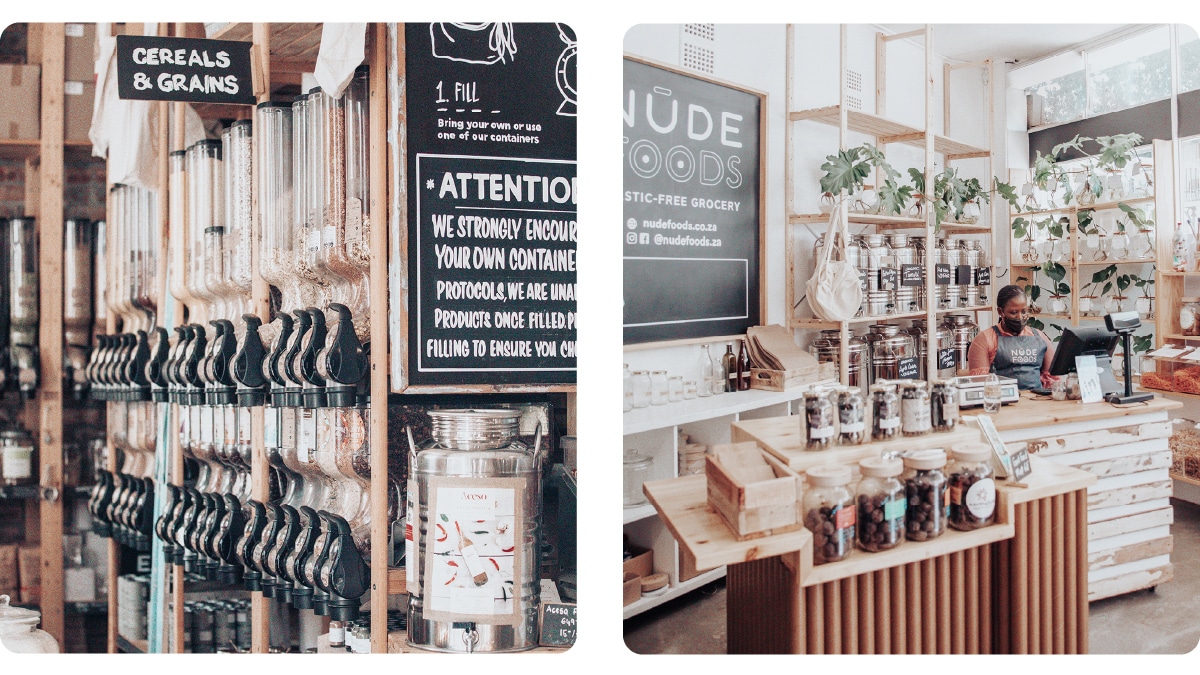
Why did you decide to incorporate SnapScan into your business?
I use SnapScan wherever I go, and it’s just convenient. When I had free time I went to a lot of food markets, and a lot of vendors would have SnapScan. So it was always something that I wanted to have as an alternative for cash or card payments.
I think in Cape Town, people expect you to have SnapScan, it’s not a nice-to-have, it’s a must-have because people are surprised when you don’t have it. For us, it was a convenience, and the technology is very user-friendly. With things like loadshedding, we’ve had incidents where our till points stopped working, and people just SnapScanned us and left. It’s a very convenient payment method.
Nude Foods was quite a disruptive concept when it launched. What advice do you have for entrepreneurs looking to start unique businesses?
I think the timing of when you launch your business is critical. If I had launched Nude Foods a year earlier, I don’t think I would have survived. There wasn’t enough awareness about plastic-free living and zero-waste living a year before we opened. We wouldn’t have had enough customers for it to get enough traction or at least to survive. So timing is always important.
You also need to ensure that you have a market. With us, because we had a lot of hype and attention on social media, we realised quickly there would be a market. Nude Foods is the fifth business I have started, some of the previous ones didn’t survive, and it was probably because the idea was too ahead of its time or there wasn’t enough of a market for what I was offering at the time. Those were lessons I learned the hard way in previous ventures.
Ready to live more sustainably? Pop in at Nude Foods on Constitution Street in the Cape Town CBD or visit their Newlands branch.
Want to share your business’ SnapScan story with us? Send us a mail at stories@snapscan.co.za
Related articles
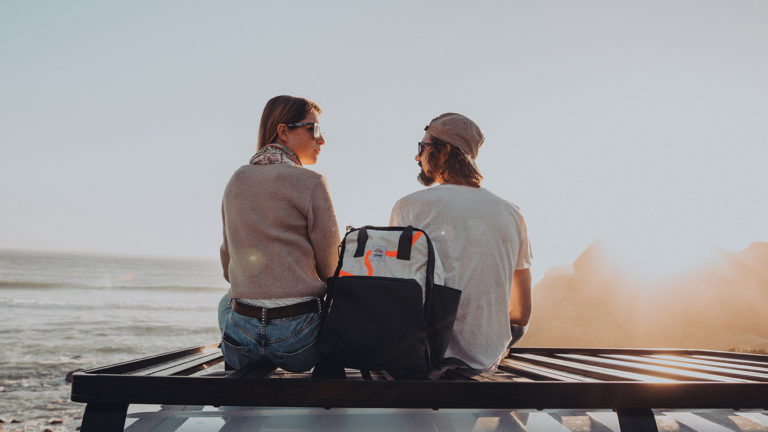
Sealand Gear: turning yacht sails into responsible sales
Ever thought to wear old yacht sails on your back? The Sealand crew sure did!

HerMerakai: nurturing her passion into a flourishing business
The multi-talented entrepreneur shares how she wove all her passions into one business.
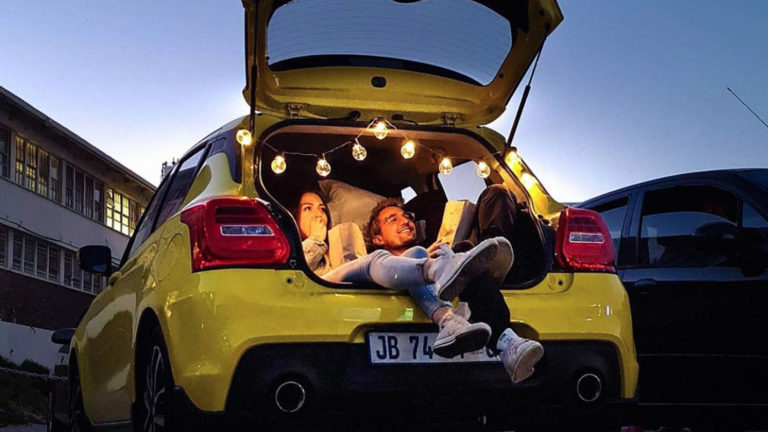
GoDriveIn: reviving a classic pastime to support a community
Take a trip down memory lane with GoDriveIn.
